A CURIOUS ABSENCE OF CHICKENS
‘Puglia is a region I wanted to get to know intimately, to understand culture, life, history and geography, reflecting through the prism of the food that’s put on the tables of locals and tourists, too. I’m reminded of my 20-year old self, scribbling in notebooks as I first travelled through Italy’s south, only this time I’m back to stay.’
After her children grew up and left home, Sophie Grigson found herself living alone. About to turn 60, she took the decision to sell or give away most of her belongings, to pack up her car and to drive to Puglia on her own to start a new life. In a part of Italy where she didn’t know anyone, having last visited the region 40 years ago, this narrative book of food writing, stories and recipes brings to life the region, its food and the local characters that she meets along the way.
This is a book about courage, hope, new horizons and, above all, delicious food.
Sophie Grigson is a cook, food writer and television presenter with over 20 books to her name and nine television series for BBC, Channel 4 and UKTV Food. She has also written columns and articles for the Evening Standard, Independent, Sunday Times, Country Living, BBC Good Food and Waitrose Food Illustrated. During this time she has been raising her children, running her cookery school in Oxford and presenting television shows for The Travel Channel. On impulse, after interviewing Russell Norman about his book, Venice, in 2019 she sold or gave away the majority of her belongings and packed herself into her small car to move to Puglia in the south of Italy.
Sophie Grigson
A prolific cookbook author and television host with long established roots in British cookery. Established as she was, she found herself wanting an adventure. She opted to relocate to Puglia. A region of Italy which she knew was by no means familiar.
With the help of local characters like ‘Downstairs Maria’ and her local postman/landlord/pasta instructor she begins to settle in and get the feel for her new life as an enthusiastic expat. She also discovers why chicken is not a common menu item. Sohpie Grigson joined us from her home in Pugia to explain all of these things and more.
BooksAboutFood.(BAF): Well, thank you very much for taking the time to chat.
Sophie Grigson: Pleasure.
BAF: You’re probably very busy these days.
Sophie Grigson: Quite busy. But, you know…
BAF: It’s quite a story you got because you were obviously very busy in the UK doing lots of things, and then, you decided to pack up your pink PT Cruiser and head south.
Sophie Grigson: That’s exactly what I did. I got rid of everything except for my lovely PT Cruiser and what fitted inside it. Actually, I lie. There are four boxes under a friend’s staircase somewhere in Oxford in the UK, so not totally, but apart from that.
BAF: What was your “A-ha” moment in starting this adventure?
Sophie Grigson: Well, I had wanted to travel when I was younger, and I’d wanted to go and live in countries rather than just travel and visit. Then, life kind of happened and work and family, and all those wonderful things that happen. So, it was something that came from way back. I interviewed somebody who’d written a book about living in Venice and cooking with the women he met there. I was very jealous. “Why can’t I have done that?”
Then, I saw an article online. I was procrastinating actually. I should’ve been doing something completely different, and I was fiddling around online the way procrastinators like me do. There was this article about a small town in the north of Puglia, where they were paying people to move there because so many people have moved out. I just suddenly thought, “That’s it. I can do this. I’ve got to move to Puglia.” We went. Two weeks later, I was in this particular small town with my children their to see how bonkers their mother was this time. It was a lovely town, but it wasn’t the right place for me. It did confirm that I wanted to move, so that was it.
BAF: How did you find where you are now? Did you just drive around?
Sophie Grigson: When I got here, I drove down with my car full of stuff. I just traveled around. People kept saying, “Oh, you got somewhere to go to.” I was like, “Nope, I have no idea where I’m going to settle.” “Do you know people there?” “Nope. I don’t know anybody there.” So, I just drove around. The area I’m in is called the Valle d’itria, the Itria Valley, and it’s right in the center of Puglia. Because it goes all the way down the heel of Italy, it’s very long. It probably would take you about four hours to drive from the top to the bottom, which is quite a long way in European terms. The Valle d’Itria is in the middle. Let me call it the right way. It feels quite green. Right now, it’s not even vaguely green, but it feels lusher. Things grow beautifully here. It’s very pretty. A lot of olive trees. It has a lot of these beautiful hilltop towns, some of which are very touristy, and I did want to live in a very touristy town because right now, August, they are hell.
I chose the town I’m in, Ceglie Messapica, because it’s in that area, but it’s not got any particular tourist attractions. The old town is pretty, but it’s not as gorgeous as the ones in Ostuni and nearby. It’s a real working town. It’s not one that is totally dominated by tourism now, and down here in Puglia, it’s becoming much more popular. So, the very pretty places, the well-known places, like Ostuni, which is 10 miles from me… Right now, nobody who lives here goes into Ostuni in late July or in August. We just don’t do it. If you have to do it, everybody comes up and says, “I went to Ostuni. It was horrible. It’s so crowded and dirty. You can’t park. Blah, blah blah. Ceglie doesn’t have that problem.
BAF: No, but certainly Puglia, t, and that particular area is not an area… It sounds like it’s becoming more touristy, but it’s not really an area which people go to first shot in Italy. That’s a little off beat the path. Somewhat.
Sophie Grigson: No, it’s not. The obvious places are as you say, Venice, Florence, Rome. What I love and have always since I first came to Italy, I’ve traveled around quite a lot throughout my life and through Italy, I think people do divide into whether they like the north of Italy or the south of Italy better. Just as the Northern Italians look at the Southern Italians as being less sophisticated. The Southern Italians think of the Northern people as such snobs and not really understanding proper life and a bit stuck up. But, I’ve always loved the South because it’s a bit ballsier. It’s a little bit rougher. It is a bit rougher. People are wonderful down here. They’re so generous and warm and kind. There are quite a lot of us ex-pats here, and they put up with us with charm and a welcoming. I guess we bring money, so it’s not so bad. They might be justified in thinking, “God. Not another bloody foreigner who can’t speak proper Italian.”
BAF: Well, certainly, I think one of the things which I found interesting was this wasn’t Sophie Grigson goes to Italy live for a year and brings the camera crew with her. This is..
Sophie Grigson: Forever.
BAF: This was a major commitment. It seems like the real thing.
Sophie Grigson: It goes wrong on the occasional, but, no. I love living here. It’s been interesting. I think I’m much happier here. Not that I was deeply unhappy back at home. I still call it home. Back in Oxford. But, I was bored with life for it. I’ve been doing the same thing, same place, for a long time. The other thing that I realized the other day. One of the things I often say to people I miss from the UK is that there’s spicy food, which I do miss, and access to cheap paracetamol and ibuprofen. I don’t know how much it costs where you are, but in the UK, you can buy a pack of paracetamol or ibuprofen in the supermarket for nothing really. In the UK, you can buy them for 30p a packet. Less than 50 cents for a pack. Here, the cheapest ones I could find for the pack cost about four and a half euros ($5.25 US approx). So much more. Then, I realized I wasn’t using them as much, so it didn’t really matter. Fewer headaches. Less stress. I think it’s less stress. Easier life.
BAF: That’s an interesting observation. Sort of a supply and demand issue.
Sophie Grigson: Yeah. I think it is also partly that you get to a certain age. When I came, I came just before my 60th birthday. I think I was able to pull a brake and redefine my life when I got here. Enough with all that stuff in England. Now, I’m going to come here, and I’m going to choose very precisely what I want to do when I want to do it and on my terms.
BAF: That’s certainly great, and it sounds like it’s going well.
Sophie Grigson: Touch wood. Yes. So far. Italy is not perfect. I love it very much, but it is far from perfect. Bureaucracy is a pain.
BAF: It’s an industry unto itself.
Sophie Grigson: Yep. Yes. It’s often a total mystery. It has to be said. But, you take the bad bits with the good bits. Bureaucracy is always a pain in the ass, but Italian bureaucracy is particularly so..
BAF: It’s legendary.
This must be a huge learning curve. I can imagine bureaucracy aside, just living there, adapting, finding a house and a town and just everything must be wonderful. If you allow it to be, it must be a wonderful learning experience where you can really just immerse yourself.
Sophie Grigson: Yeah. It’s an adventure. It’s a big adventure really. I love it. All adventures sometimes you’ve a down moment, but I’ve been, touch wood, very, very, very lucky actually.
I was so lucky. I live in a very small two bedroom townhouse, but I was really lucky. I was looking around for somewhere to rent when I first arrived, so I could take time. Somebody pointed me to this house, which wasn’t even on anybody’s books. I walked in, instantly knew that it would suit me down to the ground, and six months later, I bought it. It was just luck. It was luck.
BAF: You still have the neighbor downstairs?
Sophie Grigson: Oh, yes. I still have the lovely Downstairs Maria. She’s grand. She’s great. She was looking quite chirpy the other day when I saw her. Yes. She lost her husband just before COVID actually. I think she’s just beginning to kind of thrive again, but she’s a great cook. We communicate primarily through food.
BAF: That’s the beauty of it. I have to ask. What is the cuisine of the area? Are there any specialties?
Sophie Grigson: Yeah. All of Italy is very regional in terms of food, and Puglia really brought this home to me in a way which no one else had. I suppose because I spend time here. But, Puglian food is, obviously Italian, but it comes out of centuries and centuries of first of all poverty, and secondly of being invaded by different people. Puglia has been invaded or occupied, depending on how you look at it. It had Greek colonies, and there are still areas… Lot of the white towns look quite Greek actually. The white hilltowns. There are still areas down in the south of Puglia where they speak a dialect that’s based on Greek, which is called Griko. Some things that connect there. There’s a lot of Arabic influence in the south. Further south than where I am. The Normans owned it as well. Then, the Spanish Bourbons and on and on and on and on.
But, really. Food comes out of poverty. You get lots of vegetable dishes. Pasta is almost never made with eggs. It’s always just flour and water. It’s sturdier than Northern pasta. It’s not as refined, but I love it. They eat huge amounts of greens. Green vegetables, leafy vegetables. Most of which have a slightly bitter edge to them. They love that slight bitterness down here. A lot of beans and pulses. If you’re on the coast, there’s a lot of fish. But, it’s very expensive. Inland, less so. A lot of fruit and veg, a lot of pulses…hearty food.
One thing that surprised me is that quite a lot of dishes are actually just, really through circumstance not through design, vegan down here until you add the cheese. When you add the cheese to the pasta, that changes things. The great classic Puglian dish is orecchiette, which are little ear shaped pasta, with cime de rapa, which are usually translated as turnip tops in the UK which means absolutely nothing. I think they’re a bit like collard greens?
So, pasta with cime de rapa, which is a really simple dish. If you have a proper traditional version of it, you don’t have cheese on it. You have fried bread crumbs on top, which make it sort of crisp and things. They were a poor man’s Parmesan really.
BAF: Sounds Wonderful. It orecchiette not something that is commonly found in the supermarket. Usually more of a specialty item, which makes it that much more tasty.
Sophie Grigson: Yeah, exactly. Well, I can just about make orecchiette. I’m not brilliant at it, but it’s not easy. Can I just say? Making them by hand, the technique, is quite special. If you go to Bari in Puglia and you go to the old town, there are some very canny ladies, the orecchiette ladies, who make orecchiette out on the streets of Bari in the old town. If you walk down there, they’ll be sitting there making them and chatting. Barely looking at what they’re doing, and they just turn them out like that. Whereas, when I try and do it, “Oh! There’s one. Oop! There’s another.” Very, very slow. I certainly cannot chat as I did it. I have to concentrate, but they are wonderful. These ladies.
They’ve even adapted the east EU food and health laws to split them because these ladies are making pasta out in the street on a table in the way they’ve always done it, and they actually sit there on the streets. It’s not actually high health and hygiene rules, and then, they sell it. So, it’s not how health and hygiene rules would really like it. Now, they’ve had to adapt the rules, so that the Bari ladies are not breaking the law, which is good.
BAF: It sounds like this is just a wonderful time. Are you immersing yourself into cooking? You’ve got Downstairs Maria. You’ve got the Bari ladies, which I don’t know if you’re joining them from time to time.
Sophie Grigson: My first orecchiette making teacher was actually my landlord when I rented this house. He was also the local postman and now a great friend, so I actually, oddly, learned to make orecchiette from a man, not from one of the ladies. But, it’s fascinating. I’m really looking forward to going and traveling more. This is something I’ll do through the winter, traveling more in the south, which I don’t really know yet. Then, traveling really round the instep of Italy. Basilicata, which everyone says is the new Puglia. It’s the new undiscovered place that people are discovering, and it’s very beautiful. Then, down through Calabria to the toe of Italy.
In the past, I’ve always been a bit of a magpie when it comes to food and cooking. Learn a little bit there, a little bit here, take a bit there, but it’s so interesting just being in one area and really beginning to get under the skin of why things are like they are and how and the traditions. I’m really beginning to explore a limited subject in depth because I’m always finding out new things.
BAF: Though, with cooking, over the years, here, a bit there, especially in an area where you are. Just the history of the traditional dishes of the area must be just ripe with bits and pieces from the various guests they’ve hosted over the years. For lack of a better word.
Sophie Grigson: Yes it is. It is really, really interesting, and I’m sure it’s true. It’s true. Well, it’s true the world over. But, the differences between two towns that are next to each other can be quite something as well. Not only in food, but also in dialect. Everybody here speaks two languages basically. At least two languages. They speak Cellese, the local dialect, and Italian, which are connected but they are different. Cellese is different from Ostunese, from the dialect of Ostuni.
I was in Ostuni one day in a cafe in a park there, and there was an old guy sitting next to me who turned out to be the owner of the cafe. I said, “I came from Celle”, and I hadn’t said anything about food. They do talk about it a lot. He said, “Ugh. Celle. Well, have you had ‘this’ or ‘this’?” I say, “Well, I like the polpettine de carne.” Which are little meatballs. He said, “Oh, Celle’s polpettine de carne? No. You don’t want to have those. Ostuni ones are so much better.” So I said, “Well, why? What makes them better?” “Well, ours are bigger for a start. That means they’re juicier.” So, he made his poor wife, who was stuck in the kitchen, fry a whole plate of Ostuni style meatballs, which were very good. It has to be said.
Then, I came back and told this story to an Italian friend here. I think it might’ve been Downstairs Maria, and she goes, “Ostuni meatballs? They got it all wrong. They put too much bread in them, and they’re too big. You don’t get so much of a nice crisp outside.” Essentially, they’re actually pretty similar. It’s just size.
BAF:This must be wonderful just to experience this from town to town and just learn.
Sophie Grigson: It’s a joy. It’s a joy. I love it. It just makes me laugh, but there’s also something very endearing about taking that pride in what’s yours, your traditions, but whether it’s specific to your town or to your family or to Puglia as a whole. Even in the supermarket, they do it.
BAF: Well, I do have to ask you about the title of your book. If you could explain the one chicken recipe you have included in the book because I don’t think my explanation will do the title and the recipe justice.
Sophie Grigson: Yeah. One of the things that I noticed after a couple of months here, and when I first arrived I was eating out probably much more because I didn’t have a kitchen, but I noticed that on menus, I never saw a chicken dish. Never once. Meat? Yes. Chicken? No. I started asking people about this, and they say, “Well, maybe it’s because it was dish of the poor.” And I said, “There were lots of dishes of the poor on the menu.” Obviously, it wasn’t that. Anyway, I finally got the big clue in the form of a song, which is sung by a local, very good local comedian. It’s a lament of a chicken who is being stuffed with chilies. It’s a dish called lu pollu cusutu n’culu. I think. I have to look up. Anyway, the name means stitched up ass chicken.
So, I looked this up, and it turns out that the reason you don’t get your chicken on the menu and the reason the book is called The Curious Absence of Chickens is because chickens were just too valuable. They laid eggs. They kept on laying eggs. Once you eat them, they’re not going to lay any more eggs. If you were poor, but you were lucky enough to have chickens, they were incredibly valuable. The only time you would cook a young-ish chicken would be a really special occasion, like your town’s saint’s feast day. So it would have to go round a lot of people. It had a stuffing, and the stuffing might be a simple sort of bread and herbs. If you grew up a little bit better off, you would add various different kinds of meats and cheese and whatever. You’d stuff it up the derriere of chicken and sew it up. That’s the genesis of the story, but it is a fascinating thing. I now have come across two restaurants with chicken on the menu in two years.
BAF: Well, the one thing that’s nice is that chicken is much more readily available. Yet they’re still keeping that tradition of not having chicken going.
Sophie Grigson: Of course, people do eat chicken in their homes, but not as much as like in America. In the UK, we eat chicken all the time. It’s probably the most popular meat of all. I would guess. Or, the most eaten meat of all. Here, they do eat it, but not that much. I don’t think anybody actually questions why they don’t. They just don’t. It’s just not something you put on a restaurant menu. So, I think it’s a subconscious tradition, a subconscious way of keeping that tradition, because that’s how it’s done.
BAF: What’s next for you? I understand you do have a catering company now?
Sophie Grigson: Yeah. It’s very small. That seems to be going well. It’s quite an odd thing. Our most popular menu is the Puglian one. We haven’t yet, and I think we may never, crack the actual Italian market on this. I think the thought of having a British woman cooking their own food might be just a step too far, but we’re catering mostly to people who rent villas here and people who own houses here who are British or ex-pats. It seems to be going very well, so that’s quite exciting. Then, I’m discussing another book, but I can’t say more than that.
~~~~~
© Booksaboutfood.com 2021
Vivid, humorous and unsentimental, Sophie’s portrait of modern Puglia, still steeped in old ways, is a delicious treat. – Xanthe Clay


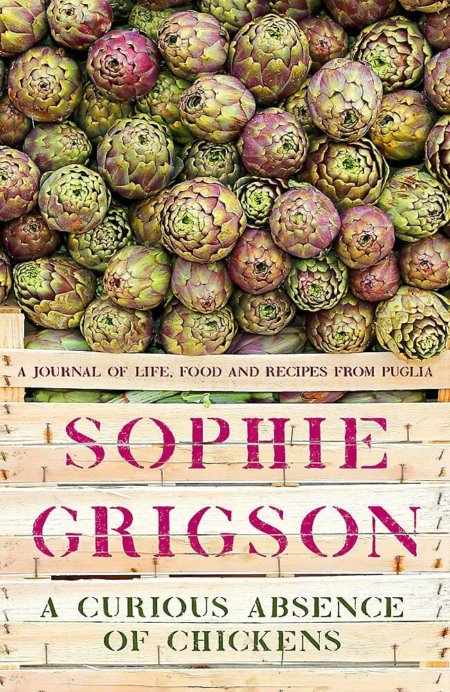


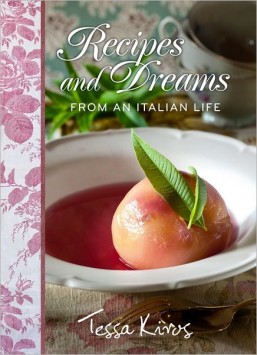
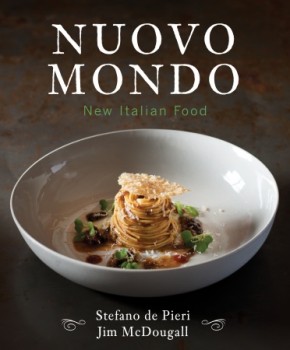
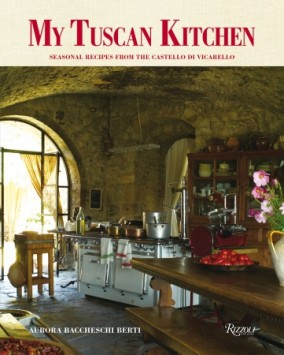
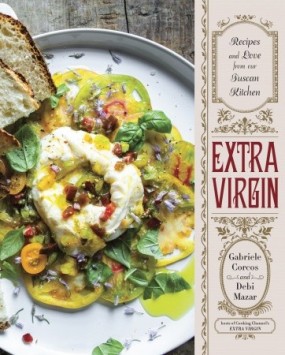
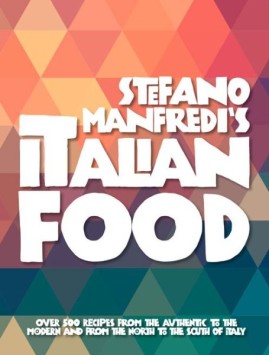
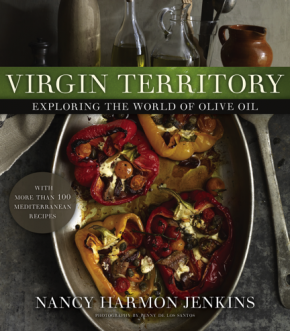
Leave a Reply